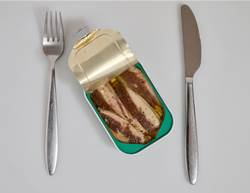You probably already know that quick-fix weight loss hacks aren’t generally recommended by health professionals—and if you’re concerned about your weight, it’s always worth checking in with your GP for guidance.
Lately though, TikTok users have been touting rice water—nicknamed ‘rice-zempic’—as a weight loss trick. So, what’s actually going on here?
Prescription medications like Ozempic and Mounjaro have become increasingly popular, but they’re often expensive and not always easy to access. That’s left space for unproven hacks claiming to be just as effective. Enter: rice water for weight loss.
Here’s the background, plus what doctors and a dietitian really have to say about it.
What is Rice-zempic?
There are a few variations on rice-zempic, but most recipes use three ingredients: unwashed rice, warm or hot water, and lime juice. Typically, people let the rice steep overnight, remove the grains, add lime juice, and drink the starchy water that’s left. Some say they drink it about half an hour before a meal, then eat normally for the rest of the day.
Potential risks of rice water
There are a few risks to keep in mind when it comes to drinking rice water—especially when it hasn’t been cooked or properly washed.
“Drinking unwashed, uncooked rice water poses clear microbiological and chemical safety risks,” says author and professor Darin Detwiler. Raw rice may carry bacterial spores like Bacillus cereus, as well as traces of pesticides, herbicides and arsenic—especially in areas where water or soil is contaminated. “Washing rice before use helps remove surface contaminants,” Detwiler says. Skipping that step makes it more likely you’ll ingest those residues, especially if the rice isn’t organic or labelled as pre-washed.
On top of that, medical director Dr Mir Ali, notes that rice water is likely high in carbohydrates. In excess, that can actually work against weight loss efforts. And even if it does lead to short-term weight changes, he says they’re unlikely to last. “This weight loss will be temporary because you’re not making permanent, healthy, long-term changes. Once you stop doing this kind of thing, the weight will come back.”
Plus, if you have a pre-existing condition like acid reflux, drinking lime juice daily might trigger symptoms, adds Dr Shah.
Can rice water help with weight loss?
Maybe—but not in the way some TikTok users might hope. “It’s relatively low in kilojoules—it’s just starchy water,” says Dr Ali. He explains that drinking rice water before a meal may make you feel full, which could result in eating less overall. (It’s unclear what role the lime juice plays, though it may simply be there for flavour.)
Still, this trend has “zero scientific backing,” says accredited dietitian Scott Keatley. “While rice water may have some nutritional value as a source of energy from starch, there’s no evidence to suggest it has any impact on weight loss,” he says—certainly not in the way that weight loss medications can.
In fact, it could leave you feeling more bloated than anything else, notes assistant professor Dr Kunal Shah. “The starch expands in your stomach and can make you feel full—but it’s very short-lived.”
Doctors are also quick to clarify that rice water is nothing like medications such as Ozempic or Wegovy. “It’s really not metabolically helping you at all,” says Dr Shah. “It doesn’t in any way mimic Ozempic,” Dr Ali agrees. “It has no hormonal effects like Ozempic.”
Are there any benefits of rice water?
There are some claims that rice water contains resistant starch—a type of carbohydrate that the body doesn’t fully digest. Resistant starch has been linked to weight management, but it’s typically formed when rice is cooked then cooled. It’s unclear whether the rice water process actually allows this to happen.
Rice also contains minerals like iron, calcium, magnesium and zinc, but there’s little evidence these nutrients carry over into rice water.
Bottom line
If you’re looking to lose weight and don’t know where to begin, Dr Ali recommends speaking with a healthcare provider first. They can assess your needs and offer evidence-based advice to support your goals. But drinking rice water isn’t a safe or effective way to manage your weight—especially when it comes to food safety and long-term health. “I don’t want people to misconstrue this as Ozempic—it’s not,” says Dr Ali.










